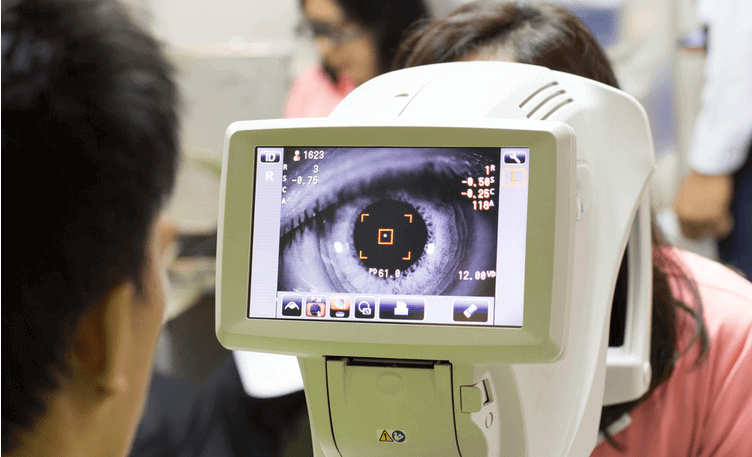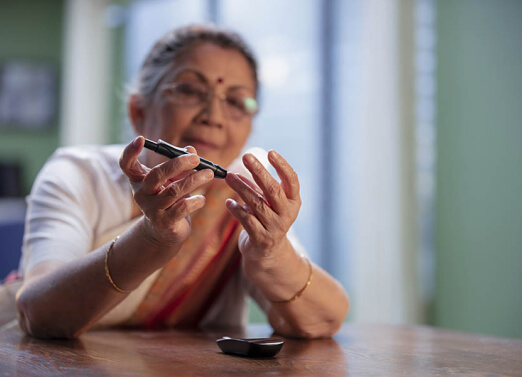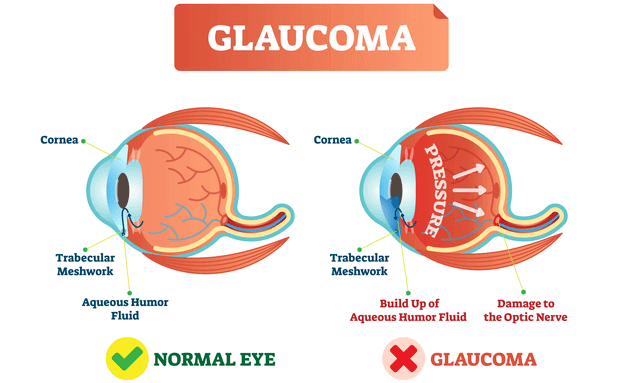
Glaucoma - Common Myths And Facts

Glaucoma, popularly known as Kala Motia or the silent thief of sight, is a condition where increased intraocular pressure damages the optic nerve and affects central vision. Our eye contains a fluid called aqueous which nourishes the front part of our eyes. In a healthy eye, the amount of aqueous matches the amount of drainage, thereby maintaining ocular pressure. With age and other related diseases, the fluid channels may get blocked, upsetting the optimal intraocular pressure, and end up damaging the optic fibre. Silently, glaucoma starts damaging our peripheral vision and gradually leads to complete vision loss.
Glaucoma was first recognised in the 17th century and is now one of the leading causes of blindness among Indians. Approximately 68% of Indians are at the risk of developing Glaucoma and nearly 1.2 lakh Indians go blind every year due to this disease.
What Is Glaucoma and Who Is at Risk?

Glaucoma, popularly known as Kala Motia or the silent thief of sight, is a condition where increased intraocular pressure damages the optic nerve and affects central vision. Our eye contains a fluid called aqueous which nourishes the front part of our eyes. In a healthy eye, the amount of aqueous matches the amount of drainage, thereby maintaining ocular pressure. With age and other related diseases, the fluid channels may get blocked, upsetting the optimal intraocular pressure, and end up damaging the optic fibre. Silently, glaucoma starts damaging our peripheral vision and gradually leads to complete vision loss.
You’re at risk of Glaucoma if:
- You are 45 years or above
- You have a family history of glaucoma
- You have undergone ocular trauma or intraocular surgery in the past
- You have health problems like diabetes, hypertension or thyroid
- You suffer from myopia or nearsightedness
What Are the Myths and Facts Around Glaucoma?
-
Is Glaucoma a Rare Condition?
Glaucoma is not a rare condition and is, in fact, one of the leading cause of blindness among people after cataracts.
According to the World Health Organisation, 3% to 5% of people, depending on risk factors, will develop glaucoma in their lifetime.
-
Can 20-Year Olds Get Glaucoma?
While the risk of Glaucoma is higher in people after the age of 45, early-onset glaucoma is a common condition that affects children and young adults. It is best to have regular eye screenings with your ophthalmologist if you have a family history or associated medical conditions that may put you at risk of Glaucoma.
-
Can Glaucoma be Reversed?

Glaucoma is known as the silent thief of vision because it shows no early signs and symptoms of vision damage. And once diagnosed, treatment can only slow down the process, but not reverse it.
-
Does Glaucoma Only Affect People Who Wear Glasses?
Some studies suggest that people who have conditions like nearsightedness (myopia) or farsightedness (hyperopia) have higher chances of developing Glaucoma. However, age, ethnicity, and other risk factors contribute to the development of Glaucoma, making it imperative to go for regular eye screenings.
-
Can People With Perfect Vision Develop Glaucoma?
Even if you have perfect vision, there is no guarantee that you will never develop Glaucoma. Open-angle Glaucoma, the most common in the world, starts affecting your peripheral vision and usually shows no early signs or symptoms until advanced stages. It is best to not wait for the degeneration of your vision and get yourself checked.
Does Everyone With Glaucoma Go Blind Eventually?
The first time someone is diagnosed with Glaucoma, the first worry they have is if they’re going to lose their vision completely or not. However, complete loss of vision is a rare event.
How Can You Take Care of Your Eyes With Glaucoma?

There are multiple ways to take care of your eyes if you have been diagnosed with Glaucoma:
- Eat dark, leafy vegetables
- Exercise often
- Sleep on a higher pillow to equalise your eye pressure
- Avoid smoking and consumption of alcohol
- Avoid caffeine
Glaucoma cannot be completely treated, but if diagnosed in the early stages, symptoms and effects can be managed. If you experience any of the symptoms or have a family history of Glaucoma, consult your ophthalmologist today.

There are multiple ways to take care of your eyes if you have been diagnosed with Glaucoma:
- Eat dark, leafy vegetables
- Exercise often
- Sleep on a higher pillow to equalise your eye pressure
- Avoid smoking and consumption of alcohol
- Avoid caffeine
- Wear sunglasses when outdoors that protect your eyes from UVA and UVB rays.

